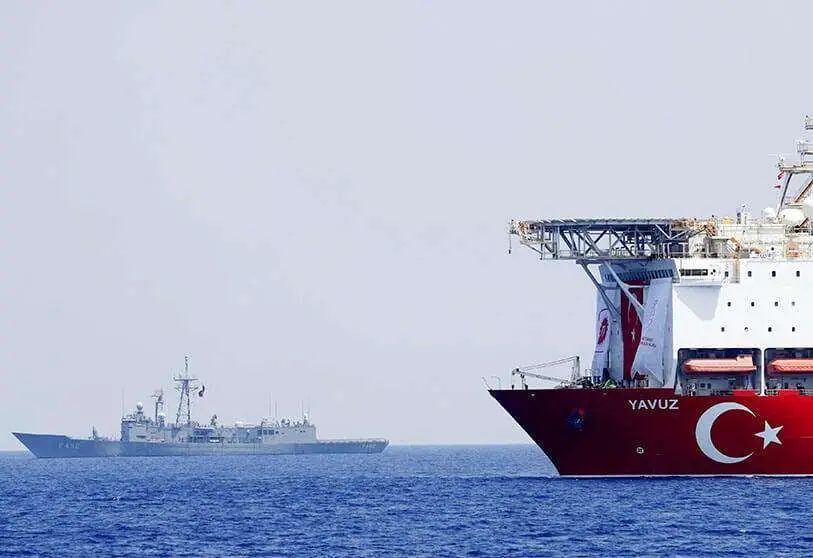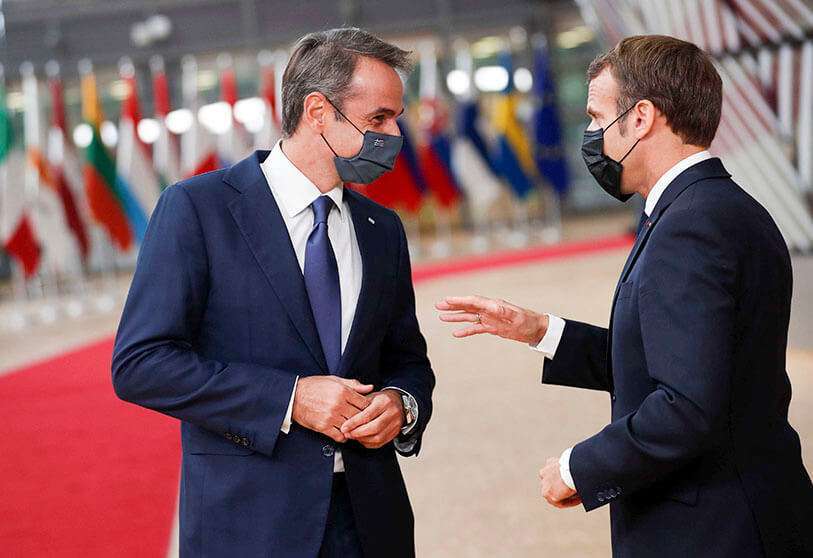Geopolitics in the Eastern Mediterranean

In geopolitics, it is very useful to make a brief historical and even cartographic context of the states involved in the conflict because it lays the foundations for better understanding later on. When the nations concerned are Greece and Turkey, this double context we are talking about seems as fundamental as it is necessary. The relationship between Greeks and Turks has gone through different ups and downs since Greece was one of the first nations to become independent from the Ottoman Empire after a long war that lasted ten years.
Another highly significant episode that occurred between both nations involved the island of Cyprus. In 1974 the Turks invaded the north of the island in the Aegean Sea and it has since been divided into two: a Greek Cypriot area, which belongs to the European Union, and a Turkish Cypriot area, which is recognised only by Turkey. A positive point in their relationship is found when more than two decades later, two big earthquakes shook first Turkey and only a few weeks later Greece, causing a wave of solidarity, first Greek with Turkey and later Turkish with Greece.
It seemed that a new horizon was opening up in relations between the two countries, so much so that, at the beginning of the second decade of the 20th century, the High Level Council on Strategic Cooperation was established, which led to the signing of various treaties on tourism, energy and transport1.
However, the Aegean Sea is an area of great value both for Greece and its more than 3,000 islands and for Turkey, which has an outlet in the open sea in this area. Hence, Turkey's reluctance to allow Greece to give effect to the clause of Article 3 of the United Nations Convention on the Law of the Sea, which reads: "Each State has the right to determine the width of its territorial sea up to a limit not exceeding 12 nautical miles measured from baselines determined in accordance with this Convention". At present, Greece sets the limit at 6 nautical miles, so if it were to succeed in meeting this point it would mean that Turkey would be dependent on them to go out into the open sea, something which Ankara is not prepared to allow.
Leaving the context aside, Greece and Turkey have been in an escalation of tension for over a year, which has even threatened conflict in the region over a hydrocarbon field in the north of the island of Cyprus.
It all began when in May 2019 Turkey carried out exploratory drilling, which in its view was legal, in the north of the island. A few months later, in July, the European Union sanctioned the Ankara government and showed its full support for Greece and Cyprus, as was to be expected given that they are two EU Member States2. However, this did not deter Turkey from its aspirations, as it deployed more drilling vessels, exercising "its right to Turkish Cypriot waters", according to the Turkish foreign minister3. The tension reached its peak when, in August of the same year, both fleets carried out combat exercises between the islands of Crete and Cyprus.
At this point, it is important to underline that the fleets of Turkey and Greece are among the 25 most powerful of a list of 138 countries, number 20 and 23 respectively4
One year later, Turkey is expanding the drilling and an important event is taking place in this escalation of tension: France comes into play and shows military support to Greece. Its president, Emmanuel Macron, announces this on his Twitter account: "I have decided to temporarily reinforce France's military presence in the eastern Mediterranean in the coming days in cooperation with European partners, including Greece5" . Since August, there have been attempts to reach agreement, but so far none has been ratified.

This conflict shows how essential the eastern Mediterranean is to the countries in the area and even to France, which has major geopolitical interests in it. In this episode we therefore have Greece and Turkey as direct protagonists, to which France can be added. All three countries have in common their membership of the Atlantic Alliance and a question that is flying around in the minds of many is what implications NATO may have in this matter.
Colonel Sanchez Tapia says that chaos could engulf the organisation as soon as a US oil company becomes involved in an event. In the meantime, he believes that isolated conflicts will continue to occur, but without a large-scale confrontation6.
In addition to the tension within NATO due to the fact that three of its members are on alert, Turkey's increasingly close ties with Russia could destabilise the organisation and the statements made by the President of the French Republic in The Economist magazine that "NATO is in a state of brain death7".
Furthermore, the European Union is another international player that has much to say in this conflict, as all the states involved are related to it: three are Member States and another-Turkey-is in the process of joining. We have already commented on how the Union has sided with its MS and shown full support for Greece and Cyprus.
However, the need for unanimity in foreign policy decisions is causing problems within the EU. Cyprus vetoed EU sanctions on Belarus not because it believed them to be unnecessary, but because it considered that the Union had not been sufficiently forceful in its sanctions against Turkey8.
We can therefore see how the conflict in the eastern Mediterranean is a good example of a geopolitical event with two main players-Greece and Turkey-and others seeking their spaceFrance-and two international organisations that have been guarantors of peace and security for decades-EU and the Atlantic Alliance. Everything seems to indicate that the solution lies in dialogue between Turkey and Greece, something that Germany has already shown itself to be in favour of, even to play a mediating role in it9.
Rafael Marente Tovar, researcher at the Royal University Institute of European Studies
Bibliography and quotations:
1 Ibid 1
2 EUROPEAN COUNCIL (online). Turkish drilling activities in the Eastern Mediterranean: the Council adopts conclusions. Press release. Available here: https://www.consilium.europa.eu/es/press/press-releases/2019/07/15/turkish-drilling-activities-in-the-eastern-mediterranean-council-adopts-conclusions/
3 EURONEWS (online). Greece and Turkey: why are they fighting over an oil and gas field in the Mediterranean?
4 GLOBAL FIRE POWER (online). Navy fleet strenghts (2020). Available here: https://www.globalfirepower.com/navy-ships.asp
5 Emmanuel Macron's Twitter account: https://twitter.com/EmmanuelMacron/status/1293639396026089472
6 SÁNCHEZ TAPIA, F. (2019). Geopolitics of gas and militarisation of the Eastern Mediterranean. IEEE Analysis Document 05/2019. Available at: http://www.ieee.es/Galerias/fichero/docs_analisis/2019/DIEEEA05_2019FELIPE-Mediterraneo.pdf.
7 THE ECONOMIST (2019). Emmanuel Macron warns Europe :: NATO is becoming brain-dead". Available at: https://www.economist.com/europe/2019/11/07/emmanuel-macron-warns-europe-nato-is-becoming-brain-dead
8 LAZARUS, A. (2020). Cyprus blocks sanctions against Belarus and demands similar measures against Turkey. Euronews (online). Available here: https://es.euronews.com/2020/09/21/chipre-bloquea-las-sanciones-contra-bielorrusia-y-exige-medidas-similares-contra-turquia
9 SÁNCHEZ, R. (2020). Turkish and Greek foreign ministers meet to reduce tension in the eastern Mediterranean. ABC International (online). Available at: https://www.abc.es/internacional/abci-ministros-exteriores-turco-y-griego-reunen-para-rebajar-tension-mediterraneo-oriental-202010081246_noticia.html
